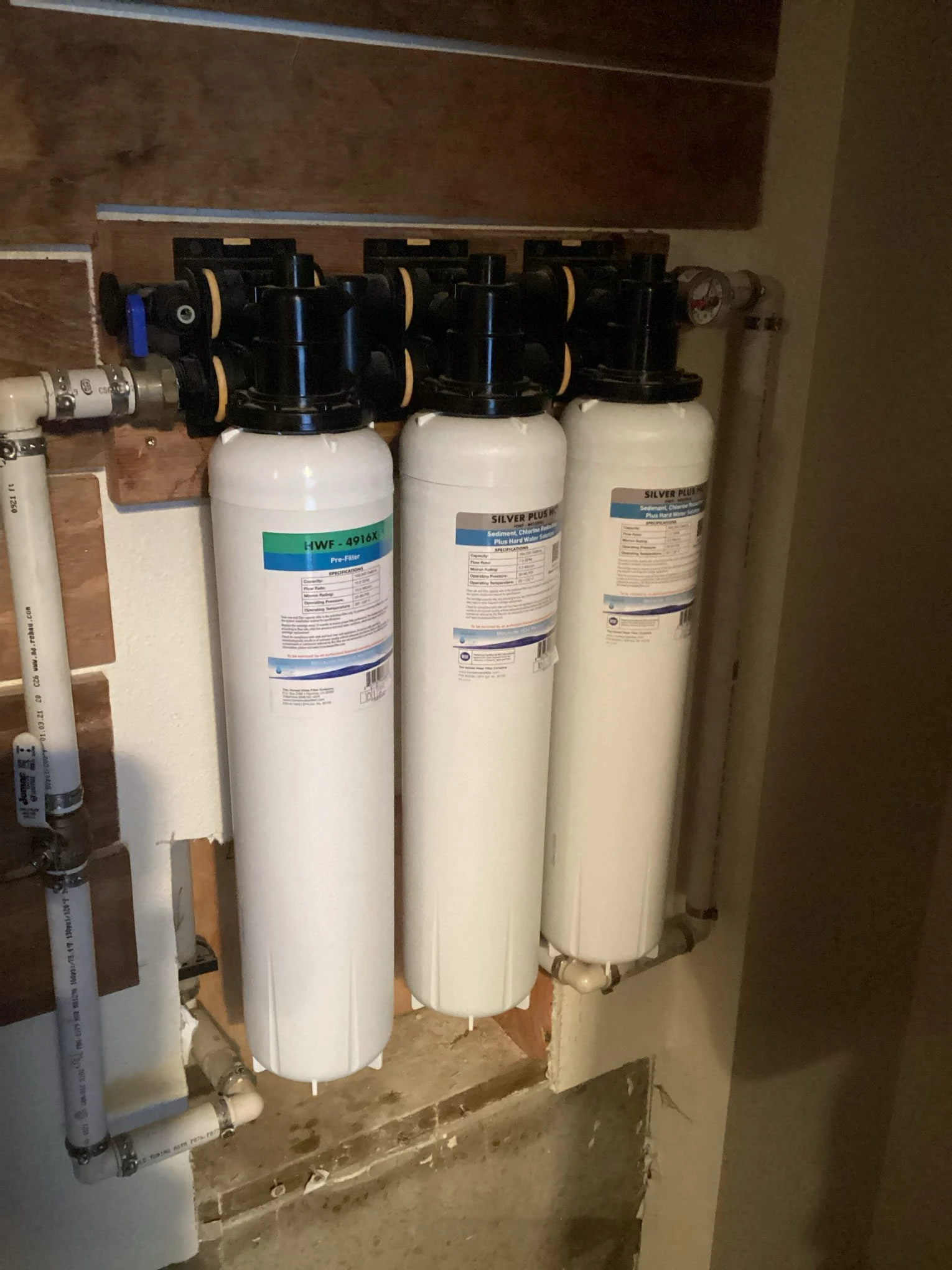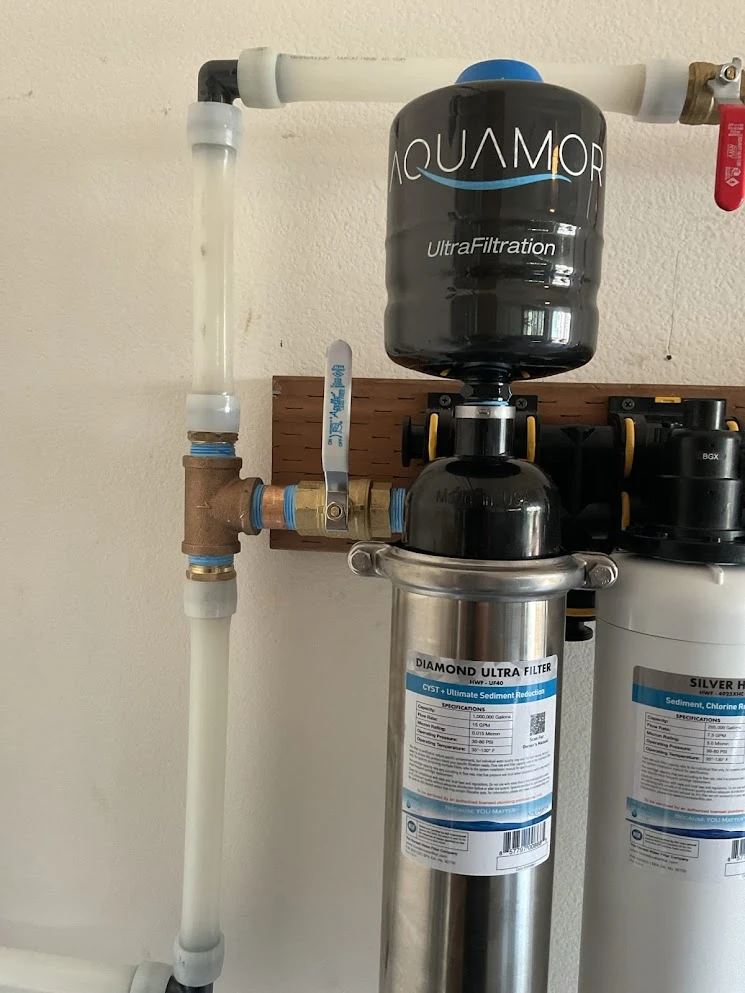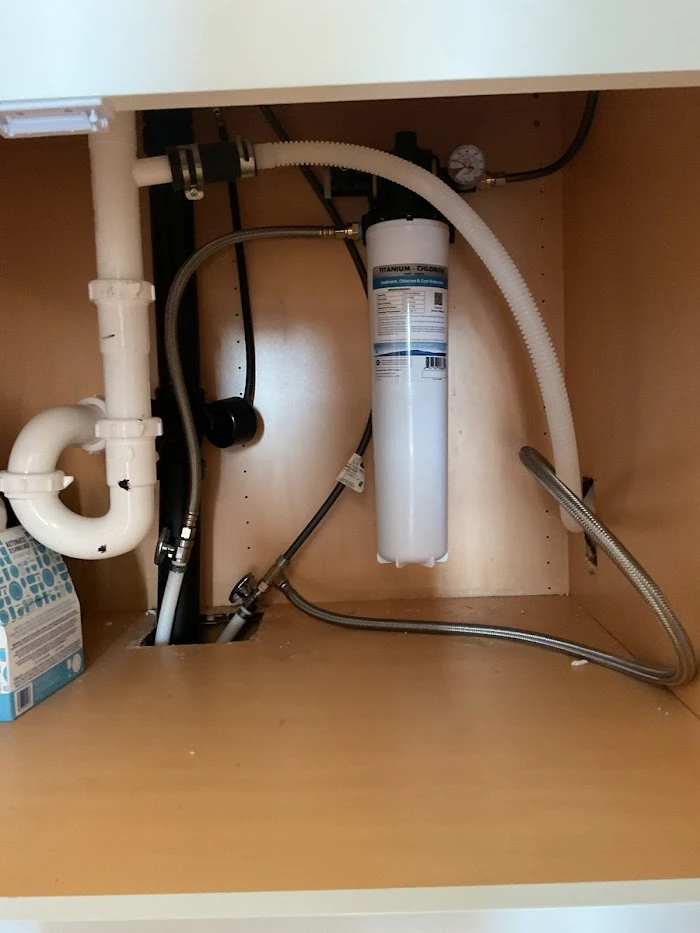
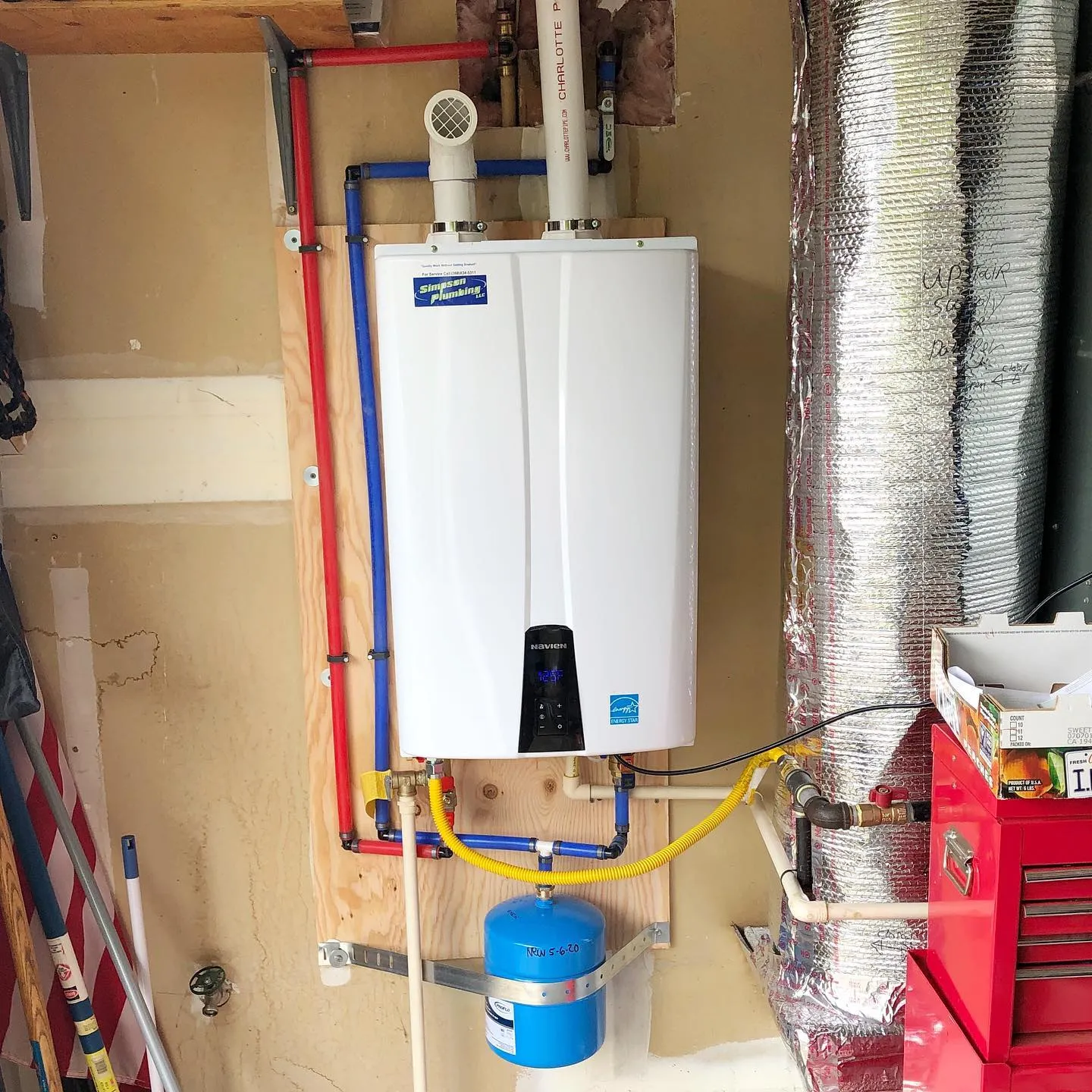
In most cases, your conventional water heater runs for at least three hours a day, even if you aren’t using it. This is because the water in the tank doesn’t stay at the optimum temperature–heat is lost through exhaust venting and normal heat dissipation. But with the latest water heater technology, manufacturers hope to save homeowners a little bit of energy–and money–with their newest units.
Whether they want to or not, as a matter of fact. According to a Reuters article from July, the U.S. Department of Energy is proposing new energy efficiency standards for water heaters. The DOE anticipates that we could save a whopping $11.4 billion annually on our energy and water bills!
It turns out that water heating accounts for a significant amount of residential energy use and consumer utility costs–around 13% of the total energy bill. If the proposal passes, it would require that electric water heaters utilize heat pump technology to achieve energy gains, while gas-fired water heaters use condensing technology.
These standards will set minimum energy efficiency requirements, measured by an Energy Factor (EF). EF is a ratio that measures the overall efficiency of a water heater in converting its energy input into hot water. The higher the EF, the more efficient the water heater.
Current standards for gas-fired tankless water heaters needed to be 0.82, while electric tankless water heaters needed an EF of 0.93. These numbers will need to be improved to meet the proposed standards. These standards are applied to various categories, including small, medium, and large gas and electric storage water heaters, as well as gas instantaneous water heaters.
Heat pump water heaters, which are already highly energy-efficient, were also included in the updated standards, with specific EF requirements. The proposal will make sure that newly manufactured water heaters meet higher efficiency levels, which would lead to reduced energy consumption and operating costs for consumers, as well as decreased environmental impact.
Some of the following isn’t necessarily new technology. But advancements in these appliances are making operations much more efficient and budget-friendly in the long term.
These units heat water directly without the use of a storage tank. They provide on-demand hot water, are more energy-efficient, and have a longer lifespan compared to traditional tank heaters.
The latest tankless or demand type water heater technology continues to revolutionize the way we get hot water in our homes. These systems offer several benefits over traditional tank heaters, including the amount of energy they save. By heating water only when needed, there’s no need to keep 40, 50, or more gallons of water heated at all times. That’s a lot of hot water to keep warm!
Many newer models feature compact designs, offering space-saving benefits and flexible installation options. Additionally, advancements in these units often include precise temperature controls, improved durability, and longer lifespans. The latest tankless units combine a blend of energy efficiency, reliability, and convenience, making for a sustainable and efficient hot water solution.
The latest heat pump water heater technology represents a significant leap forward in energy-efficient and environmentally friendly hot water solutions. These systems operate by transferring heat from the surrounding air to the water, using significantly less electricity compared to traditional heaters.
By using ambient heat from the air, even in colder climates, heat pump type water heaters can produce hot water while consuming substantially less energy. This reduced energy consumption translates into cost savings for users over the long term. Many models include different modes and often come with remote monitoring and adjustment of settings through smartphone apps.
These innovative systems capture and use heat from exhaust gasses that traditional gas water heaters release, improving energy efficiency. By utilizing the heat that would otherwise be wasted, these units can achieve efficiency levels higher than those of conventional models.
They often feature a secondary heat exchanger, which extracts additional heat from the combustion gasses before they’re vented outside. The captured heat warms the incoming cold water, increasing overall efficiency. Enhanced insulation, precise controls, and durable materials are common attributes, contributing to a longer lifespan and superior performance.
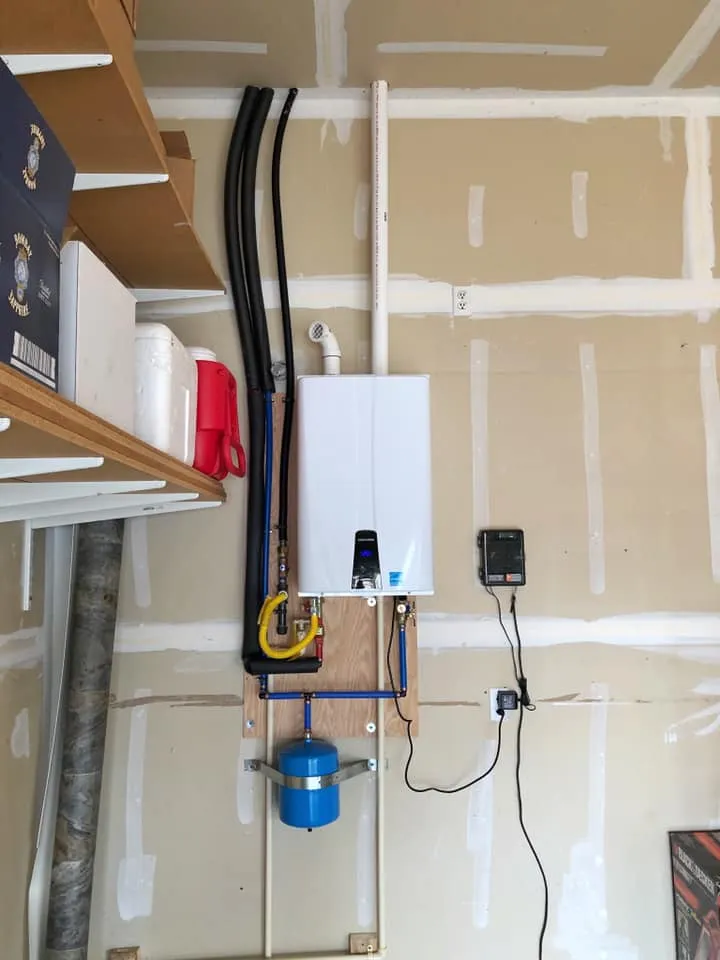
The latest hybrid water heater technology combines the best features of traditional water heaters with the energy-saving advantages of tankless systems. A key feature of these hybrid systems is their versatility. They offer a reserve of hot water in the tank while utilizing the heat pump technology to deliver efficient heating when there’s a high demand for hot water.
This hybrid approach optimizes energy consumption, offering significant savings on utility bills while ensuring a constant supply of hot water. They’re designed to be more space-efficient than traditional tank water heaters too, making them an appealing choice for those seeking a balance between continuous hot water availability and energy conservation.
In some cases, just updating or improving existing units can help with efficiency and energy savings. For example, water heaters are being designed with better insulation to reduce heat loss, improving overall energy efficiency. Water heater tanks, when well-insulated, help maintain water temperature for more extended periods, minimizing the need for frequent cycles.
By retaining heat effectively, less energy is required to keep the water at the desired temperature, and you won’t waste energy like older tanks. Improved insulation mitigates standby heat loss, where the heat dissipates through the tank walls, boosting the overall efficiency of the water heating system.
Some newer models come equipped with technology to reduce limescale buildup, extending the heater’s lifespan and reducing maintenance needs. When water heaters last longer–up to 20 years in some cases–there’s less need for replacement, which saves money in the long run as well.
Water heating technology has come a long way in recent years, with advancements in energy efficiency, environmental sustainability, and affordability. The days of bulky, inefficient water heaters are fading away, and homeowners can now enjoy the benefits of sleek, powerful units that won’t break the bank.
With even more improvements on the horizon, the future looks bright for water heating technology. It’s exciting to think about what’s next in this space, and how new innovations will continue to make our lives easier and more sustainable.
Simpson Plumbing crews have decades of experience with water heaters and know just how much these advancements can help keep a household running smoothly and efficiently. If you have questions about your existing unit or any other plumbing issues, feel free to give us a call.

